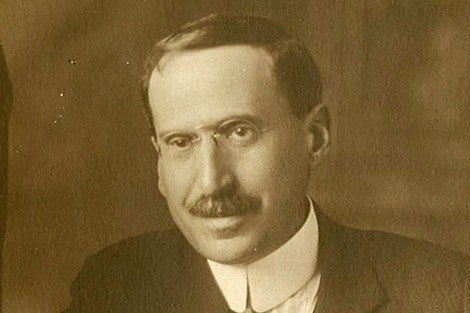“We find monuments erected to heroes who have won wars, but we find none commemorating anyone’s preventing a war. The same is true with epidemics.”
So observed Milton J. Rosenau, the Harvard Medical School professor who, along with M.I.T.’s William T. Sedgwick and Harvard’s George C. Whipple, launched the 1913 Harvard-M.I.T. collaboration that ultimately evolved into Harvard School of Public Health.
Rosenau was a leader in efforts to make U.S. milk supplies pure and safe. As late as 1900, raw milk remained the norm in part because pasteurization imparted an unpleasant “cooked” taste. It was Rosenau who established that “low temperature, slow pasteurization … killed pathogens without spoiling taste, thus eliminating a key obstacle to public acceptance of pasteurized milk, ” according to a CDC essay describing his career.
An early and avid supporter of independence for Harvard’s nascent school of public health, Rosenau went so far as to write to the Rockefeller Foundation in 1914 seeking $7.5 million over the course of 10 years for grounds, buildings, and endowment. Harvard University President Abbott Lawrence Lowell received word of the initiative in a single after-the-fact sentence: “Enclosed is a copy of an enterprise that I am sending to Mr. Abraham Flexner at his request and trust it meets your approval,” Rosenau wrote to Lowell.
As it happened, it did not.
“I presume you have made it clear to Mr. Flexner that at present at least, the suggestion is a purely personal one. The amount asked for seems very large,” was Lowell’s terse response.
In 1936, Rosenau left Harvard to help establish the public health school at the University of North Carolina, Chapel Hill, where he served as the School’s first dean—and, in fact, is honored with a monument of sorts, the eponymous Rosenau Hall, completed in 1962.
While Rosenau’s Rockefeller proposal went nowhere, the foundation would go on to become a major supporter of the School, starting with a 1921 gift of more than $1.5 million – 38 million in today’s dollars.
Also prescient was Rosenau’s vision of an independence, which presaged today’s Harvard School of Public Health, and which Rosenau lived—though just barely—to see. The University’s announcement that the School of Public Health would begin to operate on a separate budgetary basis from the Medical School came on January 8, 1946. Rosenau died just three months later.
Is there an event, person, or discovery in Harvard School of Public Health history that you’d like to read about? Send your suggestions to Centennial@hsph.harvard.edu.
